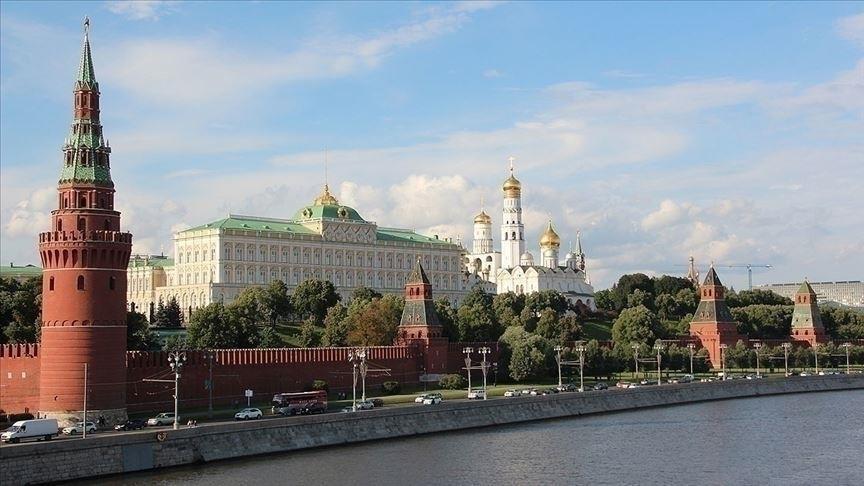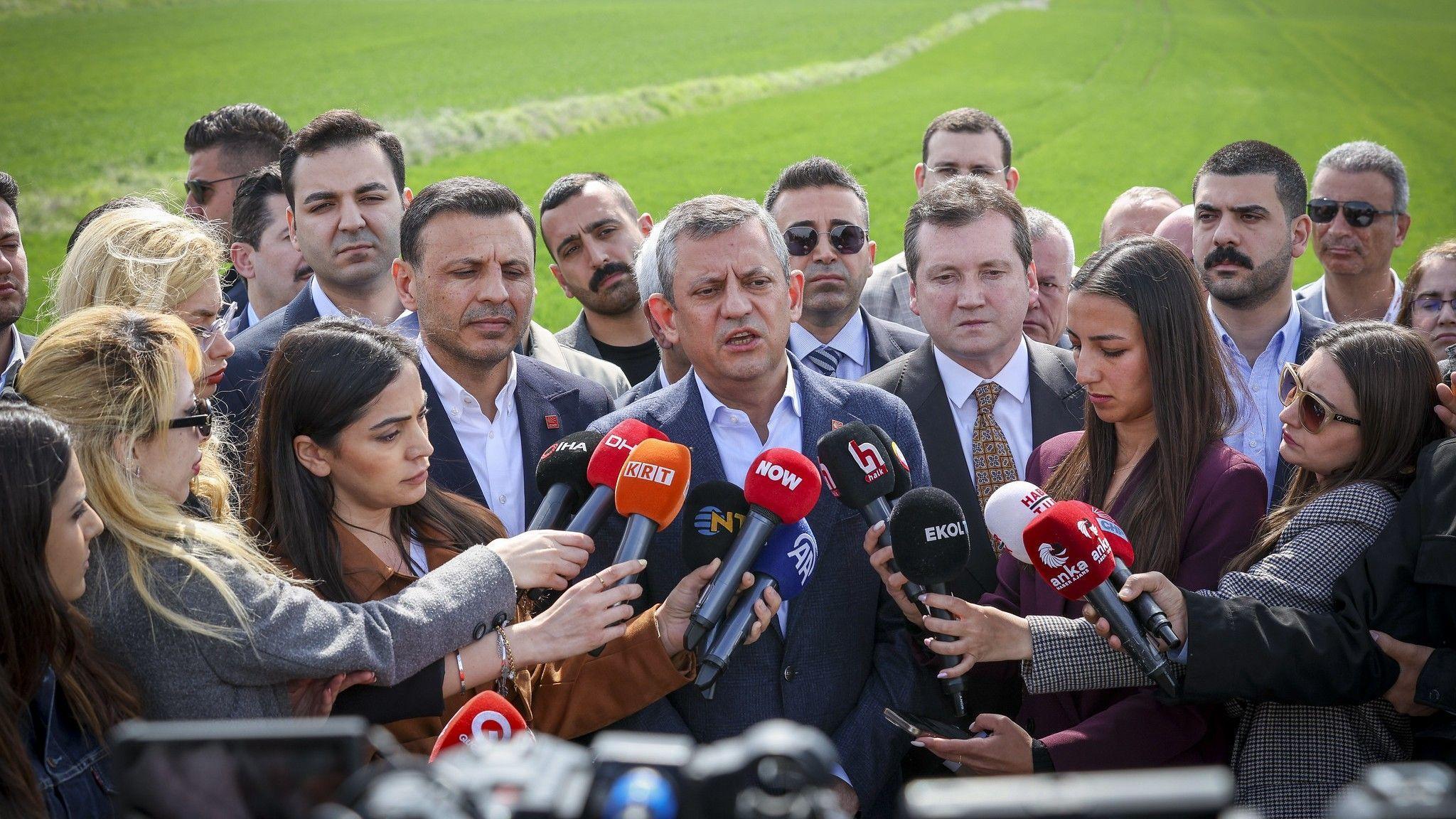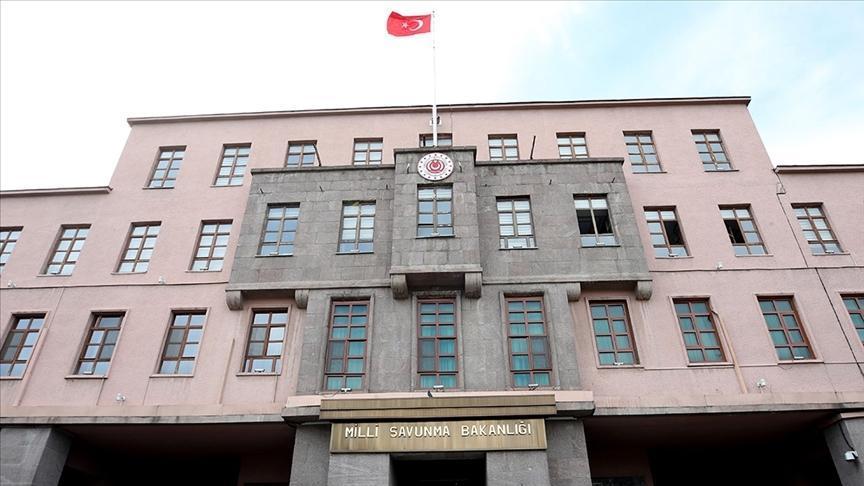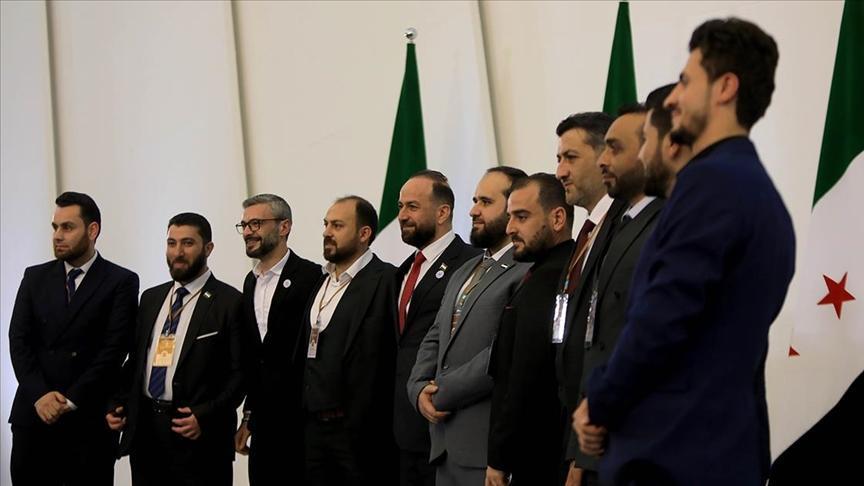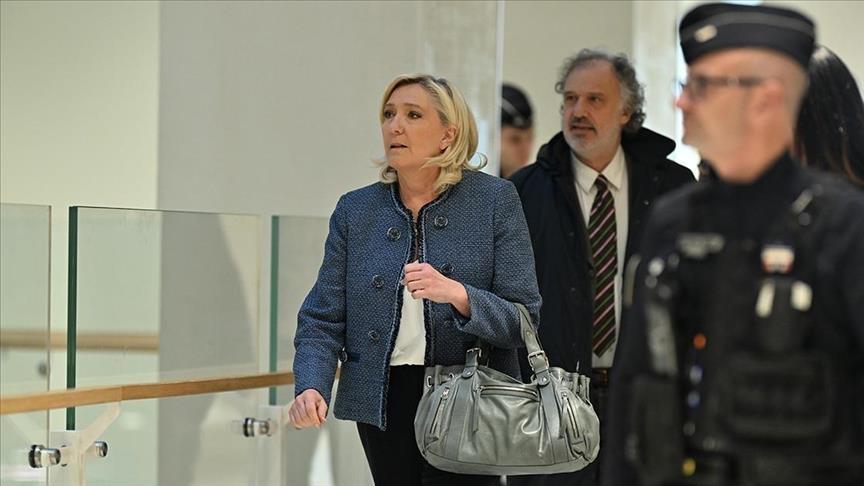INTERVIEW: Syrian Kurds have risen ‘out of nowhere’ since 2011
William Armstrong - william.armstrong@hdn.com.tr
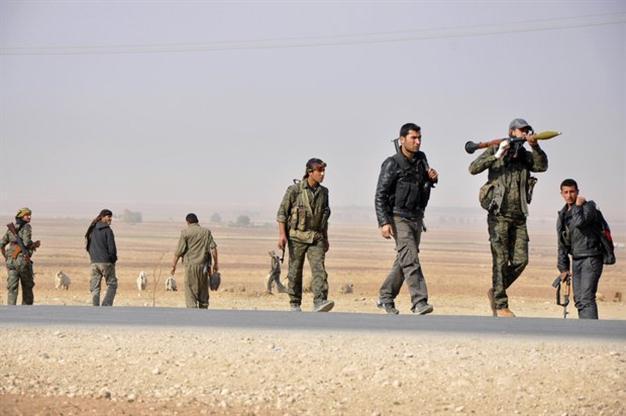 The rise to prominence of the Kurds in Syria is among the less expected consequences of the civil war raging since 2011. Thought to amount to over 2 million of the population mostly in the north of the country, the Kurds have also become one of the key U.S. allies in the stuttering campaign against the jihadists of ISIS.
The rise to prominence of the Kurds in Syria is among the less expected consequences of the civil war raging since 2011. Thought to amount to over 2 million of the population mostly in the north of the country, the Kurds have also become one of the key U.S. allies in the stuttering campaign against the jihadists of ISIS.“Out of Nowhere: The Kurds of Syria in Peace and War” by Michael M. Gunter, a professor of political science at Tennessee Technological University, charts the Syrian Kurds’ rise to international profile from a “sleepy unimportant backwater in the Kurdish struggle.” It is a short book but it provides a good background to the rapidly changing situation on the ground, taking in the modern history of the Syrian Kurds, their development of “national conscience,” and ties between the Democratic Union Party (PYD) in northern Syria and the outlawed Kurdistan Workers’ Party (PKK) in Turkey.
Gunter spoke to HDN about his book (reviewed here) and developments in Syria since it was published.
The book is titled “Out of Nowhere,” what are the main reasons why the Syrian Kurds were, up until 2012, less heard of than Kurds elsewhere?
The Syrian Kurds are a much smaller proportion of the population in Syria than they were in Iraq, Turkey, and Iran. Also, unlike Iraq, Turkey and Iran, there was no single contiguous Kurdish area in Syria. Instead there were three non-contiguous areas, which weakened the Kurdish presence in Syria. There was no natural geographical area for guerrilla safe-houses in Syria, so no guerrilla movement ever developed there like in the other states where Kurds live. Also, the Kurdish parties in Syria were tiny and divided, while government suppression of them was horrific, which certainly dampened Kurdish recognition in Syria. Finally, the PKK [Kurdistan Workers’ Party] - in return for receiving a safe house in Syria after 1978 - implicitly returned the favor by keeping a lid on Syrian Kurdish unrest.

Michael M. Gunter, the author of
"Out of Nowhere:
The Kurds of Syria in Peace and War."
“Decree 93” is a notorious example of Baathist suppression of the Kurds. It classified a number of Syrian Kurds as "ajanib," meaning "foreigners," which was based on Kurds from Turkey who had been in Syria since 1925. They weren't able to vote, own property, or work in government jobs. The justification was that they were not “really Syrians.” Another group of Kurds were classified as “maktoumeen,” meaning “concealed,” which was even worse. Legally they did not even have an existence; they had no civil rights at all.
Another notorious Ba’athist policy was the Arab Belt that they wanted to create along the borders with Turkey and Iraq. Kurds were vacated from the borders, expropriated from their land, and moved elsewhere, in order to isolate them from Kurds across the border.
A number of other oppressive Ba’athist policies were taken. The notorious Mohammed Taleb Hilal manuscript in 1963 described the Kurds as a type of cancerous growth on the Arab body politic, and this was certainly popularized by the Baathist regime. More recently, other measures included not registering the Kurdish names of new-born children and banning Kurdish cultural centers. The Ba’athist Constitution of Syria, for example, defines the country as an Arab Socialist Republic that has no place for Kurds.
But there’s a paradox there, because at the same time as the oppression was going on, after 1978 Syria hosted the PKK. How did that dynamic emerge?
Syria hosted the PKK as a weapon to use against Turkey in the water wars and in disagreements over the annexation to Turkey from Syria of Hatay province in 1938. In return for getting a safe-house in Syria, the PKK implicitly promised to keep a damper on all Kurdish unrest within the country. So it was a win-win proposition for al-Assad.
That arrangement solidified links that were already quite strong between Kurds in Syria and Kurds in Turkey. Could you explain the ties between the PKK in Turkey and the Democratic Union Party (PYD) in Syria, in the past and today?
In 1998 Turkey threatened to go to war with Syria unless it expelled the PKK. The same year, Damascus finally expelled the PKK, leading to the capture of [PKK leader Abdullah] Öcalan a few months later. The PKK was abolished in Syria in 1998, but within five years the remainder of the PKK in Syria reestablished a new party called the PYD, which for some time was barely tolerated by Damascus. But eventually, after the Syrian civil war began in 2011, the PYD was allowed to blossom in Syria and the regime started to use it as a tool against Turkey. The PYD is now more geographically focused in the northeastern part of Syria. In the PKK days, it had a wider range of activities available in Syria, including in the notorious Bekaa Valley.
Currently Salih Muslim, the head of the PYD, is playing a delicate balancing act, with contacts in both the regime and the opposition, trying to maintain the Kurds' position in that way.
That's true. The PYD consciously pursues a "third path" in the civil war because much of the opposition to al-Assad has no independent role for the Kurds to play. There’s no guarantee of any Kurdish rights if the opposition wins, so why should the PYD support the opposition? Indeed, the regime has even given the PYD a little more than the opposition has, though certainly the PYD doesn’t trust the regime. If the regime wins the war, it would almost certainly try to suppress the Kurds again. So the Kurds are consciously pursuing a third independent path between the opposition and the regime.
Salih Muslim was himself arrested on a number of occasions before the war broke out, when the PYD was being oppressed by the Syrian regime. But once the war broke out the regime saw the PYD as a useful tacit ally against the opposition. Salih Muslim was allowed to return to Syria, and now to some extent there’s tacit cooperation between the regime and the PYD. But Salih Muslim, who I know personally and who speaks good understandable English, has made it clear that while he will cooperate with the regime to some extent in the interest of the Kurds, he has no intention of supporting al-Assad in the long run and he calls for al-Assad's removal.
What about the fact that the Kurdish territories in northern Syria are not all contiguous areas?
To some extent this discontinuity has been alleviated. Two of the “cantons” - Kobani and Haseke (Jazira) - are now united. One thing that is exercising Turkey very much is that the Kurds are trying to join these two united cantons with the third canton Afrin (Kurdagh).
But I don't think anyone really understands the "democratic autonomy" that the Syrian Kurds are trying to implement. This is a new strategy of Öcalan's about how to govern in a post-nation state world. The nation state is perceived as inherently oppressive, so democratic autonomy is a decentralized form of bottom-up government that ignores the traditional nation state and brings together different ethnic groups. These groups administer their own affairs along with gender equality and ecological concerns.
That sounds too good to be true, and it probably is. But in theory at least democratic autonomy alleviates the problem of non-contiguous Kurdish areas heavily populated by Arab and Christian minorities. In this decentralized democratic autonomy, these different groups are supposed to be able to cooperate with each other in a bottom-up type of administration.
In the book you try to describe what democratic autonomy means but you express skepticism about it. Why do you think it's too good to be true?
I don't completely dismiss it. But just as when Lenin first came to power in Soviet Russia, he said he would just administer things and the state would gradually disappear. Of course, the exact opposite actually happened: One of the most monstrously centralized bureaucratic states in history emerged through the Communist Party.
I think it is largely impossible to administer somewhere through this theory of democratic autonomy because the power would simply not be there to hold together the different segments of society. Indeed, despite the theory of democratic autonomy, in practice it is clear that what is holding Rojava (Syrian Kurdistan) together is the power of the PYD and its brother organization the PKK. Despite the talk about democratic autonomy, in reality a traditional military power - the PKK and PYD - is holding it all together.
The nature of PYD rule has come under some scrutiny of late. It has been accused of “ethnic cleansing” and other war crimes, most recently by Amnesty International. What do you make of this, particularly as the PYD is a U.S. ally in the anti-ISIS coalition?
I'm very disappointed in Amnesty International. In general it is an NGO that plays a very important role in protecting the rights of the individual against government suppression. But the Amnesty report released on Oct. 12 alleges forced PYD displacement and home demolitions, which is very partial and distorted. It does not do justice to the PYD's efforts to protect not only Kurds but also Arabs against the depredations of ISIS. Of course, if you're fighting ISIS there is going to be some collateral damage, but the PYD and its YPG fighting units have gone out of their way not to kill or displace the population.
In some cases, of course, the Arab population has been asked to leave during the fighting. But as soon as the fighting is over the PYD invites the Arab population to return, and it has returned. Indeed, that's what democratic autonomy is about: Giving everybody the right, not just the Kurds, to administer themselves. On the other hand, we all know that ISIS brags about how much it destroys cities and murders people it disagrees with. So in my opinion it is ISIS causing most of the damage and killing.
You completed research for your book over two years ago. How do you assess the change in the situation since the book was written - particularly, of course, the rise of ISIS?
In very general terms I'm pleased with how my work has held up. Certainly my background analysis of the situation in Syria has held up very well. ISIS was barely known to the outside world at the time my book was written, but in my book you can see I have a deep respect for the threat that ISIS was presenting to the Kurds - though clearly I had no idea that it would be such an existential threat. If I was writing a second volume I'd go into this in much greater detail. In my book, I spend much more time talking about the threat of Al-Nusra, the Al-Qaeda affiliate in Syria, to the Kurds. Indeed, some authorities feel that in the long run Al-Nusra may turn out to be worse than ISIS.
Since the book was published the battle for Kobani has also taken place, which is said to have been the “Kurdish Stalingrad.” More recently, the new increased Turkish hostility and intervention into Syria is a whole new game, with the Turks seeing the PYD as an extension of the PKK. The peace process between Turkey and the PKK also broke down in July, leading to renewed war between the two sides that is now spilling over into Syria against the PYD. Maybe even more important is the Russian intervention over the last month, which has the hallmarks of being a game-changer in terms of eliminating ISIS.
How do you think the Russian intervention to support the al-Assad regime will affect the Kurds?
If the Russians go as far as possible and restore al-Assad to rule in Syria, of course this will be negative as far as the Kurds are concerned. In the middle and short-term the Russian intervention is helpful to the Kurds. The Kurds are even talking with the Russians about working together. But in the long run, if the Russians completely restore al-Assad to power it could be a real threat to the Kurds in Rojava.
There's also the issue of the Russians not targeting ISIS and instead focusing on the other rebels.
So long as Russia is not targeting the Kurds. Some other rebels, such as Al-Nusra, are enemies of the Kurds. But in just the last week or so the Kurds have actually created a formal organization called the Syrian Democratic Forces. This is an alliance between the PYD/YPG forces and various moderate Arab forces, such as what is left of the Free Syrian Army and various Christian groups. If the Russians begin to extend their targeting of rebels to these groups that are in alliance with the Kurds, then we could see some real problems for the Kurds in the Russian intervention.
* This and other interviews are available on the Turkey Book Talk podcast. Subscribe via iTunes here, Soundcloud here, or Podbean here.


